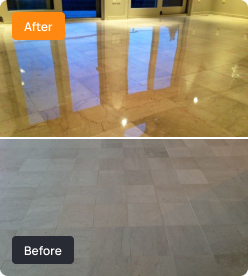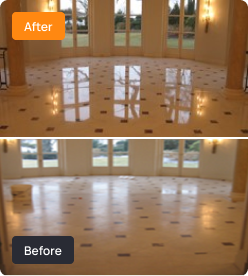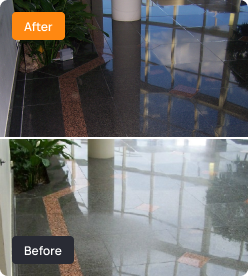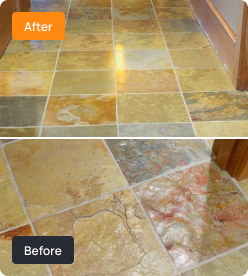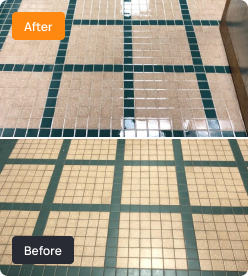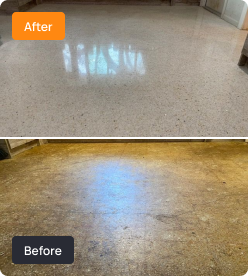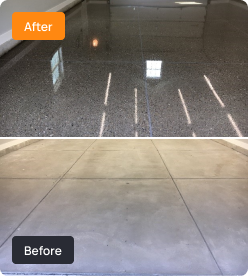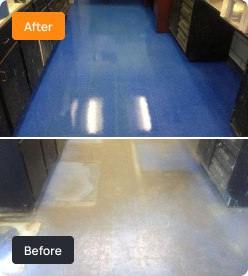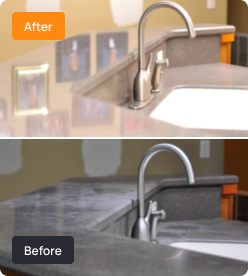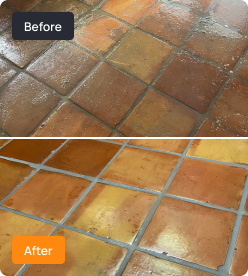Historical Cleaning: Was Vinegar the King of Surface Shine?
The story of vinegar as a cleaning agent begins in ancient civilizations. Revered for its natural antiseptic qualities and ability to dissolve stubborn dirt and grime, vinegar was more than just a culinary element; it was a cornerstone in early hygiene and sanitation practices. In cultures like the Egyptians and Greeks, vinegar served as a […]
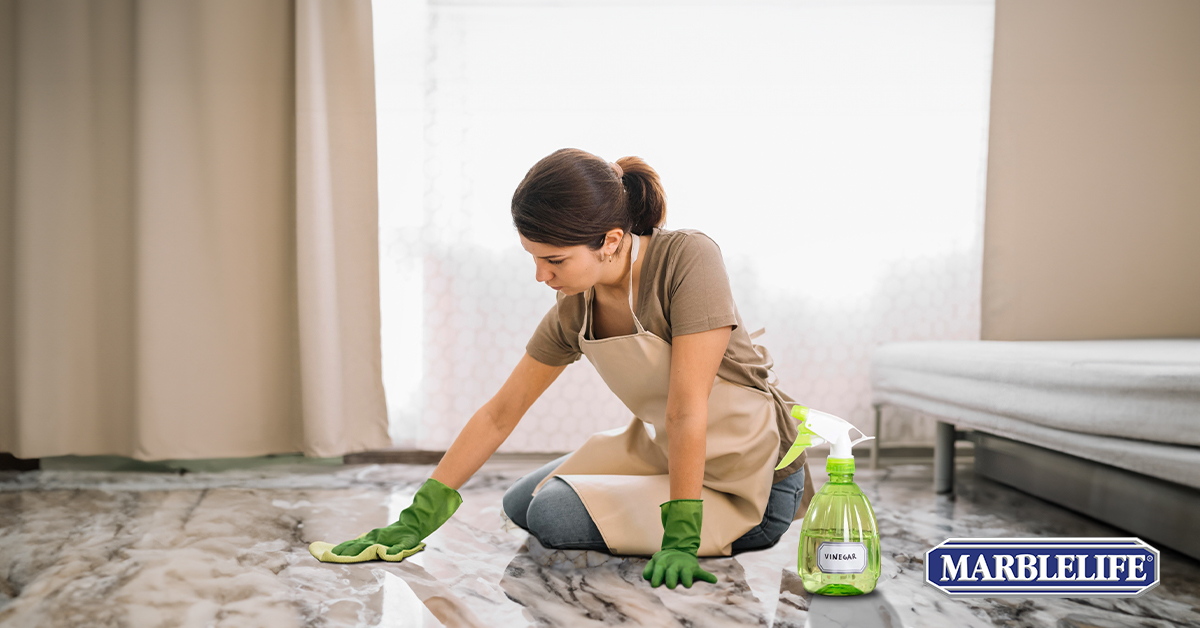

The story of vinegar as a cleaning agent begins in ancient civilizations. Revered for its natural antiseptic qualities and ability to dissolve stubborn dirt and grime, vinegar was more than just a culinary element; it was a cornerstone in early hygiene and sanitation practices. In cultures like the Egyptians and Greeks, vinegar served as a formidable cleaner, appreciated for its simplicity and effectiveness. This early use, however, had its drawbacks.
The acidic nature of vinegar, while beneficial against germs, was harmful to certain materials, particularly porous stones like marble. This early recognition of vinegar’s corrosive effects on delicate surfaces is a critical aspect often overlooked in its historical narrative, yet the ancients recognized it well.
Vinegar’s Role Through the Middle Ages
As time progressed into the Middle Ages, vinegar remained a staple in cleaning, albeit with growing awareness of its limitations.
The era’s cleaning recipes often featured vinegar, now combined with fragrant herbs for a more pleasant aroma. This period was a mix of innovation and tradition, where vinegar’s usage was balanced with the need to protect increasingly elaborate and delicate architectural elements. The Middle Ages saw the rise of intricate stonework and ornate interiors, environments where vinegar’s acidic properties could cause damage.
This period underscores a pivotal moment in cleaning history – realizing that not all traditional methods suit the evolving landscape of materials and surfaces.
The Victorian Quest for Surface Perfection
In the Victorian Era, the emphasis on domestic elegance and the aesthetic presentation of interiors brought a new challenge: the need for cleaning solutions to maintain and enhance sophisticated surfaces’ beauty.
Although vinegar was still favored for its streak-free cleaning of glass and mirrors, its limitations became apparent with more delicate and luxurious surfaces like polished wood and ornate stonework, including marble, limestone, and travertine.
The Victorians’ quest for an immaculate and refined home environment underscored the need for increasingly specialized cleaners. These new solutions had to offer more than vinegar, particularly in preserving the integrity and appearance of high-end surfaces. Otherwise, cleaning would create spill marks, spots, and rings, particularly on marble surfaces, ironically resulting in an unclean impression.
The 20th Century: Emergence of Specialized Cleaning Agents
The cleaning industry underwent a significant shift with the advent of the 20th century. The emergence of commercial cleaning agents marked a move away from traditional methods like vinegar and other acidic cleaning approaches. This era witnessed the introduction of specialized products; each formulated to address specific cleaning challenges and surface types. The limitations of vinegar became increasingly apparent, particularly when it came to maintaining surfaces like marble, granite, and other natural stones. Occasionally, a direct chemical attack is seen with etching on marble. Sealers had not yet been developed, so their future role in preventing grout and granite staining was still unknown. These materials demanded gentle yet effective care beyond the consistent capability of vinegar’s acidic nature. The rise of these specialized cleaning agents mirrored a growing realization that different surfaces necessitated varied forms of care. This concept was only beginning to gain traction in the cleaning practices of that era.
Contemporary Perspective on Vinegar
Today, vinegar maintains its reputation for being eco-friendly and generally effective in certain cleaning scenarios. However, its suitability as a universal cleaning agent greatly depends on the type of surface it is used on. In addition to recognizing its unsuitability for delicate surfaces like marble, limestone, and travertine, where vinegar can do more harm than good, Its acidic properties can lead to etching, permanently marring the smooth finish and diminishing the sheen of these materials; we also began to realize they could have a negative effect on sealers that were being introduced to protect granite and grout from staining. In fact, just one cleaning can substantially damage and remove these seals, restoring the risk of grout staining and granite staining. Vinegar is so effective in removing seals that acidic solutions are now used to strip seals when re-coloring grout with MARBLELIFE COLORSEAL technology.
Consequently, vinegar began to fall out of favor due to its newly recognized detrimental effects on many common flooring and granite surfaces. This realization highlights the importance of choosing cleaning agents specifically designed for the surface at hand, especially when dealing with high-end materials that are not only functional but also an integral part of the aesthetic appeal of a space. Today, we recognize the need to select a cleaner tailored to the surface to prevent damage. MARBLELIFE refers to this as INAPPROPRIATE CLEANER damage. They have a name for it because it is so common; fully 20% of all restoration work is required because of self-inflicted damage caused by using an inappropriate cleaner by a maid, janitorial service, or homeowner.
The use of vinegar would diminish, only to be rediscovered as a ‘new’ trend amid a burgeoning interest in ‘ancient history’ and eco-friendly living. Unfortunately, we had to learn the limitations of vinegar to limit its use to areas where it can shine and remove it from use in areas where it would result in costly repairs, unsightly staining, and more difficulty sanitizing the floor or counter when dirt can drop beneath the wipeable horizontal surface into the naturally occurring pores and crevices in grout and stone.
The development of surfactant cleaning, pioneered by Union Carbide Chemical, from which MARBLELIFE would later emerge, introduced the next generation of cleaners. These surfactant cleaners could lift dirt and oil from sensitive and sealed surfaces without using acidic ingredients.
It was a crucial realization that even with a MARBLELIFE surfactant-based cleaner, which could remove all dirt and oil, thus perfectly cleaning a surface, one could still end up with a surface that appeared ‘dirty’ due to damage affecting the stone’s appearance. Damaged surfaces would prevent the cleaner from “achieving clean.” This triggered one of the largest chemical companies in the world to begin developing and researching stone restoration sciences and, ultimately, the development of MARBLELIFE, the largest stone and tile restoration company in North America. Once a surface has been restored, one can achieve a clean surface and a “clean appearance,” which was always the ultimate goal.
In what is the ultimate irony, vinegar cleaning could clean the shiny finish right off the marble, resulting in the need for MARBLELIFE and MARBLELIFE’s surfactant cleaner systems. Today, vinegar cleaning results in large restoration bills before homeowners realize the detrimental side effects of what was a good-natured intent.
Vinegar in Today’s World: Eco-Friendly but Not Universally Surface-Friendly – Stay with your glass.
Vinegar’s appeal as a natural, non-toxic cleaning agent is undeniable in today’s eco-conscious world. However, its suitability remains a topic of debate, especially among surface care experts. For high-end surfaces like marble, granite, and other natural stones, the acidic properties of vinegar can be more detrimental than beneficial. The acid in vinegar can etch these surfaces, leaving them dull and damaged, which contradicts the preservation and aesthetic appeal objectives.
However, its use on glass or coated appliances is different – vinegar can excel here. The trouble arises from our quest for all-in-one super cleaners, ignoring the common-sense approach that better results come from understanding how things work and using solutions tailored to our specific surface and problem.
This ineffectiveness underscores the critical need for specialized care and maintenance, especially for surfaces that significantly affect a property’s overall beauty and value.
The MARBLELIFE Approach: Specialized Care for Precious Surfaces
At MARBLELIFE, we recognize the unique needs of various surface types, especially those sensitive or high-value ones. Our philosophy emphasizes that each surface requires specialized care, focusing on the science of not only removing dirt and oils but also understanding the cleaner’s impact on surface chemistry and the sealers used to protect these surfaces. Contrasting with vinegar’s one-size-fits-all approach, MARBLELIFE’s products are crafted with precision and a deep scientific understanding. Each formulation is tailored to clean, protect, and enhance the surface’s natural beauty, ensuring it remains vibrant and damage-free.
The term ‘enhanced’ should not be misleading. MARBLELIFE products are specifically formulated to avoid creating false positives. This means no additional waxes and oils are formulated into the cleaner to leave a greater shine on the surface than the surface can deliver. By definition, such a surface would not be clean and would eventually trap dirt beneath that same wax. We know this because MARBLELIFE routinely gets calls to remove this build-up from countertops. The key is to create a smoother, more light-reflective surface for a higher shine. When done correctly, this effect is permanent and lasts for years. In contrast, treatments with waxes and oils are temporary, lasting only a few weeks, trapping dirt, and eventually necessitating a MARBLELIFE cleaning to restore the surface.
Explore our range of best-selling products, each meticulously formulated to offer exceptional care for your delicate surfaces, ensuring their pristine and beautiful condition.
Marble & Travertine Care
MARBLELIFE’s Marble & Travertine Cleaner is a game-changer for maintaining marble and travertine surfaces. It effectively removes oil and dirt and ensures a streak-free, natural shine. This product significantly outperforms vinegar, which can etch and dull these delicate surfaces. This highlights the importance of using a cleaner specifically designed for such materials.
If you’re unsatisfied with the shine of your surfaces, consider reaching out to MARBLELIFE. They offer free consultations to assess and explain the current state of your surfaces and what might be needed to enhance their shine, ensuring they remain consistently lustrous post-cleaning.
Tile & Grout Care
Our Tile & Grout Cleaner is a prime example of ease of use and effectiveness. It is ideally suited for maintaining the beauty of your tile and grout, eliminating the risk of damage often posed by vinegar, particularly on grout lines. Vinegar’s acidity can erode grout over time, while MARBLELIFE’s cleaner preserves and cleans without causing harm.
Stained grout is a common frustration for many homeowners and building managers. It often appears as a failure of the cleaning service, reflecting poorly on the owner or manager. Still, a closer examination often reveals that the issue is not just the dirt on the grout line but within it. Fortunately, this situation can be remedied. The grout can be resealed and even re-colored to make the seal resistant to acid in the future, simplifying and speeding up the cleaning process. MARBLELIFE COLORSEAL represents the future of how grout will be colored and protected during floor installations. Most floors can be corrected in less than a day without any dust, damage, or disruption, resulting in a restored, clean surface that is easier to maintain. Stained grout is a problem of the past, but if you use vinegar, you are creating the problem and making it worse.
Granite & Quartz Care
MARBLELIFE Granite & Quartz Cleaner stands out as a superior option for granite and quartz surfaces. It effortlessly cuts through kitchen grease and oil, delivering a streak-free shine while preserving the stain-protecting seal of these beautiful stones.
Vinegar will NOT mark up granite as it will with marble; its attack on granite is much sneakier. Vinegar subtly erodes the silicone penetrating seal applied to granite, designed to prevent spills and stains from penetrating the stone’s natural pores. Removing isn’t the issue; it’s the colorful spill of that glass of wine, that jelly, that gravy, that salad dressing, or a hundred other spills that will stain the granite in the future. Once stained, there is no guarantee that the stain can be removed. This can lead to a costly decision – live with the stain – or replace that $5000-10000 granite counter. In either case, one will be reminded of that stain, of that vinegar that removed that seal.
If you’ve cleaned your granite with vinegar, it’s essential to re-seal it. Re-sealing is a simple, quick, and inexpensive process. MARBLELIFE provides Granite Cleaner and Stone Cleaner for this purpose. When that first granite stain pops up, this is a wipe-on/wipe-off process that one wishes one took the time to do. Your MARBLELIFE professional explains there is no guarantee it can be removed, which could be costly and smelly.
Each of these products showcases MARBLELIFE’s dedication to specialized surface care. Operating on the principle of solving our clients’ major stone-related issues, we aim to create satisfied customers who will support MARBLELIFE’s business. Our scientifically supported solutions offer a modern, effective alternative to traditional methods like vinegar, ensuring top-notch care for every surface type in your home or business.
The Science Behind Effective Surface Care
Developing MARBLELIFE’s cleaning products involves extensive research into various surface materials’ chemical and physical properties. This research guides our formulation process, ensuring that each product is ideally suited for its intended use. Unlike vinegar, which can inadvertently cause harm due to its acidity, our products are non-acidic and specifically designed to interact safely and effectively with the surface material, be it marble, granite, or other types of stone.
Preserving the Legacy of Your Surfaces
Our goal at MARBLELIFE is to clean surfaces and preserve their legacy. This surface care means considering the material’s history, composition, and role in the overall design of a space. By choosing MARBLELIFE’s specialized products over traditional methods like vinegar, you’re not just cleaning a surface; you’re ensuring its longevity and maintaining its story. This care is particularly important for characters integral to a property’s aesthetic and historical value.
Conclusion: Embracing the Future of Surface Care with MARBLELIFE
In conclusion, although vinegar has been a significant player in the history of cleaning and will likely remain a staple in our pantries for salad dressings and perhaps as a natural glass cleaner, its prominence in the realm of cleaning agents has reached its peak and is now declining.
The future of surface care requires a more nuanced and specialized scientific approach. MARBLELIFE is leading this evolution by bridging the gap between traditional cleaning methods and the demands of modern, high-end surfaces. This is achieved through developing advanced cleaners and integrating surface restoration and prevention strategies for the most cost-effective ways to ‘achieve clean’ and maintain a ‘clean appearance.
If you’re uncertain whether your surface is dirty or damaged, we invite you to utilize MARBLELIFE’s free consultation service.
For a dirty surface, a specific MARBLELIFE product might suffice. However, damaged surfaces may require a specialized service to restore them, after which you can maintain their condition with our products. Our unwavering commitment to excellence in surface care guarantees that your surfaces will look their best and maintain their integrity and beauty for the long term. Learn more about our innovative solutions at MARBLELIFE Products.


